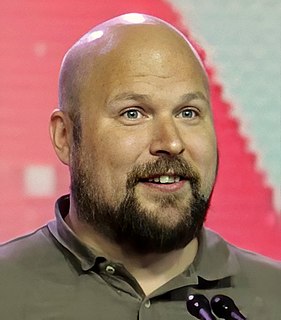A Quote by Tamora Pierce
I distrust any advice that contains the words 'ought' or 'should'.
Related Quotes
I cannot imagine how any diplomat, or any dramatist, could improve on (Ronald Reagan's) words to Mikhail Gorbachev at the Geneva summit: 'Let me tell you why it is we distrust you.' Those words are candid and tough and they cannot have been easy to hear. But they are also a clear invitation to a new beginning and a new relationship that would be rooted in trust.
Hereby perceive we the love of God, because He laid down His life for us, and we ought to lay down our lives for the brethren." How often I think of that 'ought.' No sugary sentiment there. Just the stern, glorious trumpet call, OUGHT. But can words tell the joy buried deep within? Mine cannot. It laughs at words.
Living in the now is freedom from all problems connected with time. You ought to remember that sentence, you ought to memorize it, and ought to take it out, you ought to practice it, you ought to apply it. And most of all, you ought to rejoice in it because you have just heard how not to be wretched, miserable you any more but to be a brand new, and forever brand new man or woman.
I have never felt any inward assurance of genius, or any presentiment of glory or of happiness. I have never seen myself in imagination great or famous, or even a husband, a father, an influential citizen. This indifference to the future, this absolute self-distrust, are, no doubt, to be taken as signs. What dreams I have are all vague and indefinite; I ought not to live, for I am now scarcely capable of living.
The interpretation of the laws is the proper and peculiar province of the courts. A constitution is, in fact, and must be regarded by the judges, as fundamental law. It therefore belongs to them to ascertain its meaning, as well as the meaning of any particular act proceeding from the legislative body. If there should happen to be an irreconcilable variance between the two, that which has the superior obligation and validity ought, of course, to be preferred; or, in other words, the Constitution ought to be preferred to the statute, the intention of the people to the intention of their agents.
Methodological naturalism gives advice to scientists about what they should include in their theories. There is a second type of methodological naturalism that gives advice to philosophers, which I call "methodological naturalismp." It says that the methods that philosophers should use in assessing philosophical theories are limited to the methods that scientists ought to use in assessing scientific theories.
If a thing can be said in ten words, I may be relied upon to take a hundred to say it. I ought to apologize for that. I ought to prune, pare and extirpate excess growth, but I will not. I like words—strike that, I love words—and while I am fond of the condensed and economical use of them in poetry, in song lyrics, in Twitter, in good journalism and smart advertising, I love the luxuriant profusion and mad scatter of them too.





































